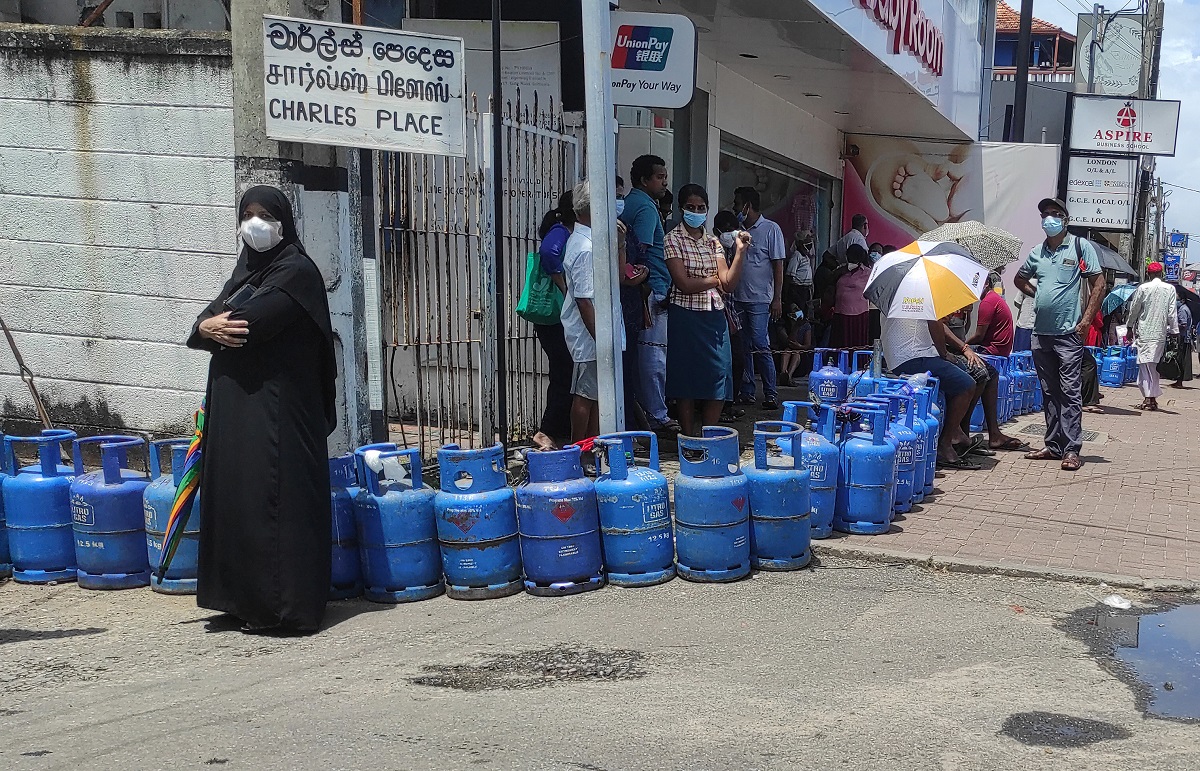About 60 per cent of Sri Lankan households in difficulty due to the country’s economic crisis
A survey by the Department of Census and Statistics reports that many families have had to look for a second job as a survival strategy, while most found themselves with a smaller monthly income and few alternatives. Government officials are trying to implement the provisions imposed by the International Monetary Fund.
Colombo (AsiaNews) – About 60.5 per cent of Sri Lankan households have experienced a drop in their average monthly income, while more than 90 per cent have reported greater spending due to the country’s economic crisis, this according to the latest survey by the Department of Census and Statistics.
The survey found that 21.9 per cent of households have been forced to change their eating habits and implement survival strategies to make up for the lack of food, a figure that rises to 22.8 per cent in rural areas.
Respondents cite various reasons for lower incomes, but the main one – reported by 48.7 per cent of households – is fewer working hours, while lower salaries and allowances are least reported factors.
To mitigate the problem, many Sri Lankans have looked for a second job rather than apply for loans or mortgages. However, most respondents (73.6 per cent) said they had no strategy.
What is more, “individuals facing unemployment or reduced incomes often encounter challenges in accessing necessary medical treatments and preventive care, leading to delays or unavoidable gaps in healthcare,” senior academics Sampath Igalawithana, Champika Ranatunga, and Gishan Amaratunga told AsiaNews.
Indeed, “financial barriers may exacerbate pre-existing health conditions by limiting access to essential medications and treatments. The survey findings reported that approximately 29 per cent of individuals have experienced some form of illness.
“Among these individuals, 7 per cent of patients have changed their treatment procedures as a direct result of the ongoing economic crisis. Among the patients who altered their treatment procedures due to the current economic crisis, 33.9 per cent resorted to using drugs only when their illness reached a critical stage.”
According to economic analyst Devinda Samarakoon, "the majority of Sri Lankans are suffering silently due to the ever-increasing cost of living due to the economic crisis, triggered by policy mistakes by the previous government.
"Although, the reduction in the inflation rate is good for the Central Bank as an indicator for its monetary policy, it is not a valid argument for measuring the welfare level of people, if their income has not correspondingly increased."
Meanwhile, officials at the Treasury Department note that “the government is considering how to implement an International Monetary Fund (IMF) stricture to adjust all excisable taxes to reflect the annual rate of inflation, as it will further increase the prices of a range of items, including petrol and diesel, on the back of the VAT revision that came into effect on 1 January.
“Such a move would be a further burden on the people who are bracing for the harsh impact of the VAT hike and the removal of most VAT exemptions. Through the VAT hike, the government aims to raise an additional Rs. 650 billion in revenue.”
25/05/2022 12:05
01/03/2023 18:04







.png)










